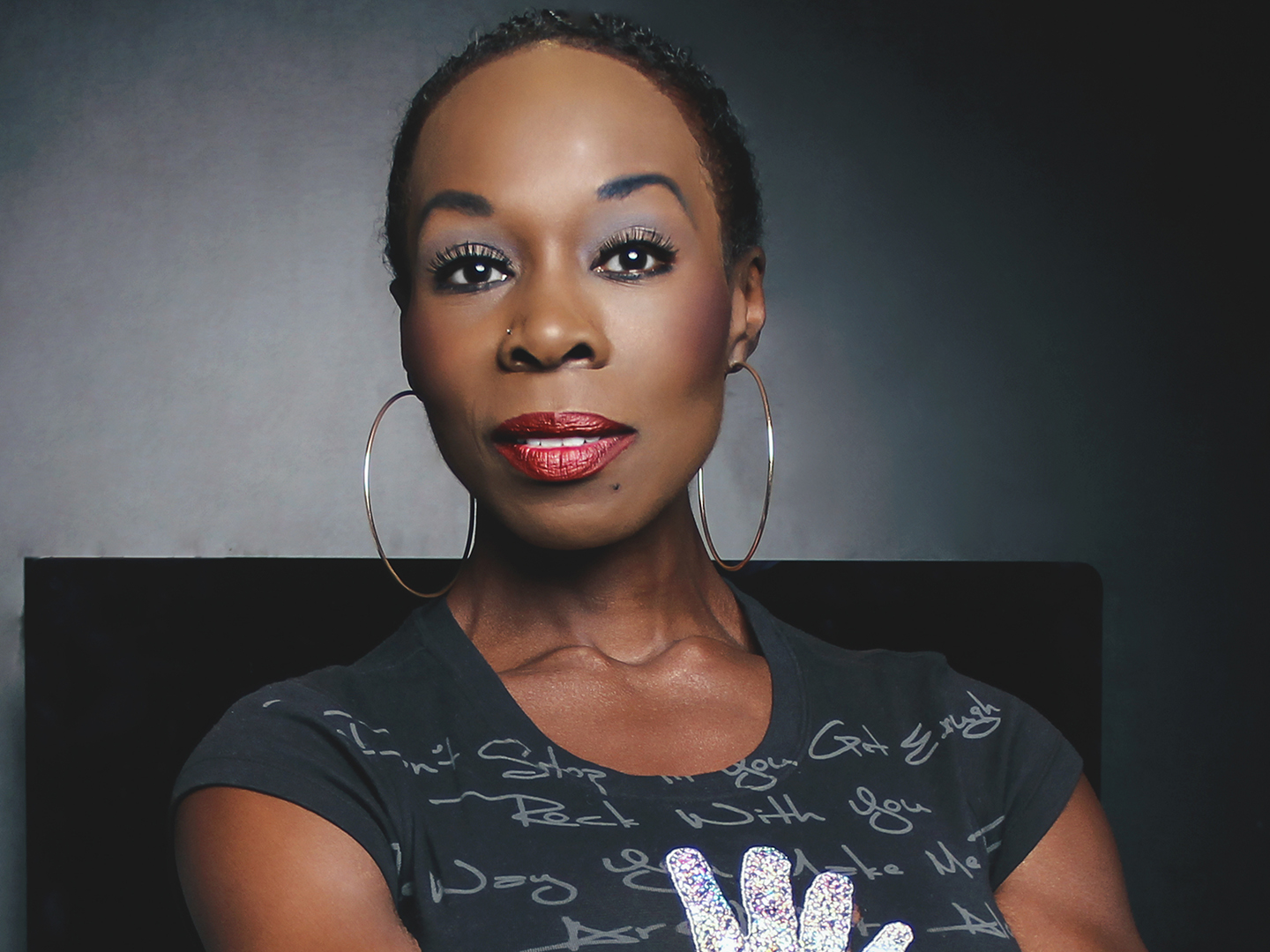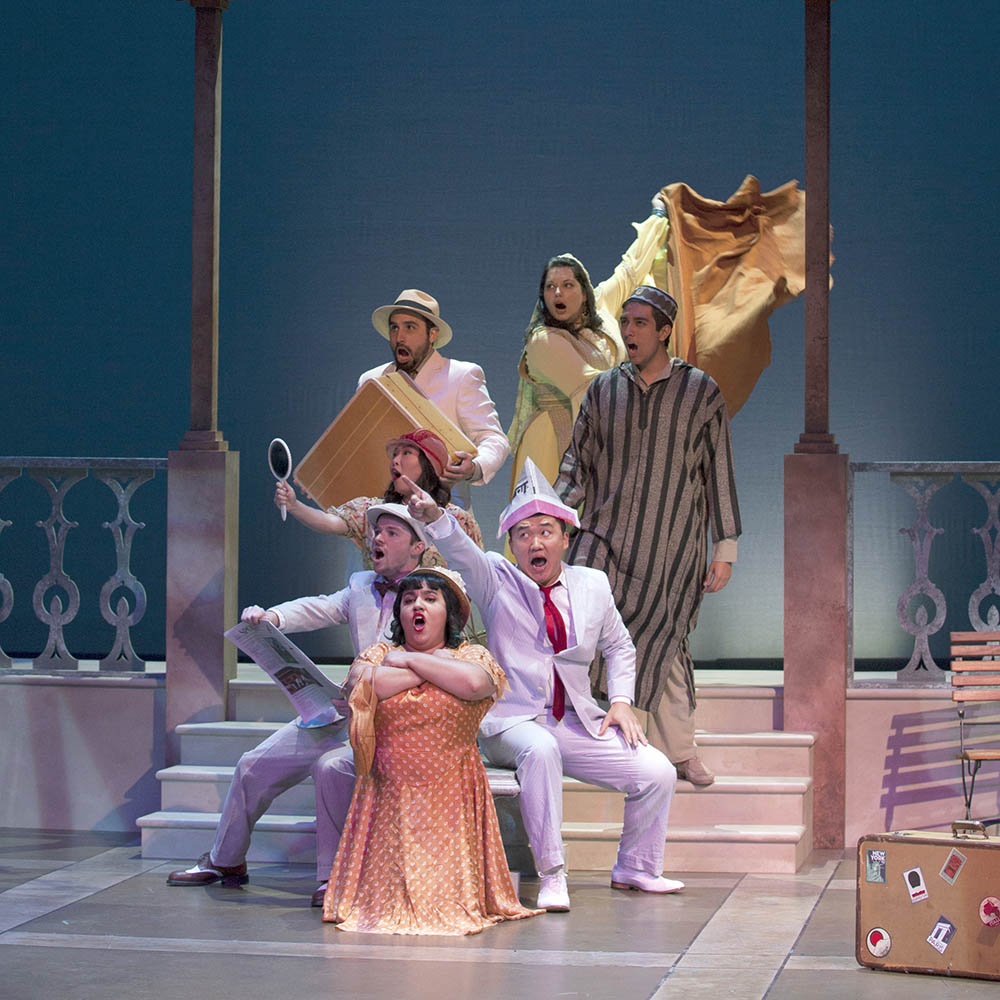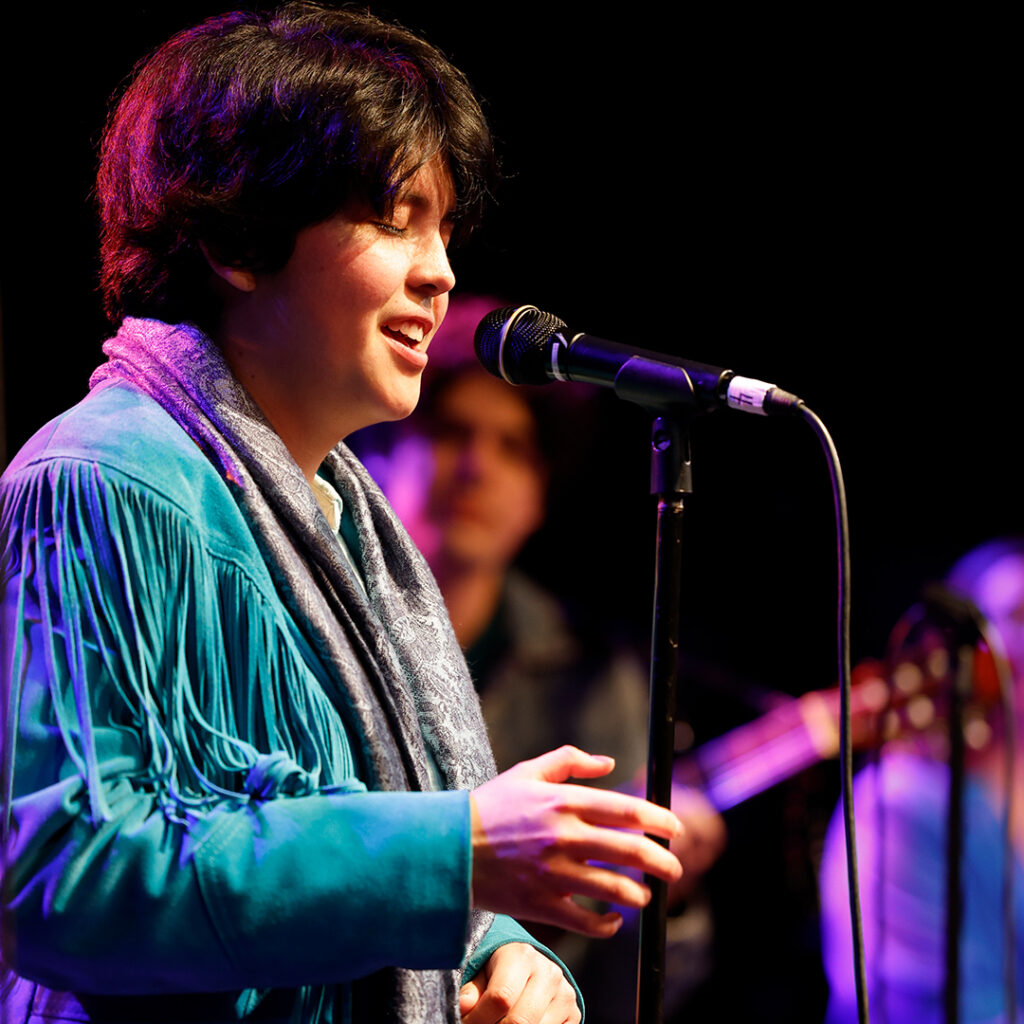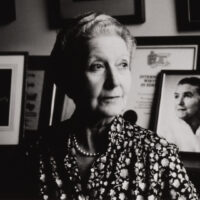
Office Hours with Lyndia Johnson
By Deanna Gasparyan
In this ongoing series called “Office Hours,” get to know some of the exceptional scholars and artists who make up USC Thornton’s faculty as they answer questions about themselves.
Lyndia Johnson, Popular Music
In your opinion, what makes a great singer: natural ability, skill, or both?
Both, absolutely. At my company outside of USC, the motto is “Where Talent Meets Skill.”
For example, I grew up listening to my grandmother sing all the time. She wasn’t an educated or sophisticated musician, but she had a natural ability to make lovely and pleasing sounds in her throat. Usually, it was stimulated by something like cooking or sewing or even ironing and then I would hear her begin to sing to herself and I’d listen.
Now, does that translate to a career as a singer? No, I don’t think everyone’s meant to have a career as a singer, but yeah, a lot of people have that natural gift of being able to organize sounds in their throat and let that emerge as something pleasing to the ear.
What led you to create your company, Sterling Voice Coaching?
I was in the middle of my opera career in the nineties in Chicago, and I was beginning to feel very disillusioned with opera and how it was manifesting in my life. I began to question whether this was the path for me for a lifetime.
I think I struggled with reconciling myself as a young girl of color, finding her voice in the African American church experience and all that entails; the religious experience in the black church and how the voice emerges out of praise and worship and the very natural way my voice just came to life. I matriculated into a very structured musical environment where all those sounds that came naturally to me were suddenly given names like “head voice,” “chest voice” and “legato.” And all the time, I’m thinking, “Well just ask me to sing.” I got very good at organizing those sounds according to the names they were given in Bel Canto.
But the better I became operatically, the bigger distance I felt culturally, and that in turn began a transformational process in me. So, I had to decide. I was done with grad school, and I was on the fast track into my opera career, but I was unhappy. I had to choose between either continuing the operatic path or preserving a sense of my musical identity from my background and upbringing. Or could I juggle both?
It was hard, but by the late nineties, I was very interested in studying vocal pedagogy. I was very interested in understanding how all those operatic bel canto terms showed up in gospel, R&B, pop, rock, bluegrass, or country. And so, I began to study voice science, vocal pedagogy, vocal acoustics and voice anatomy to the hilt! I just absorbed everything I could get my hands on. I sat with laryngologists who let me shadow them, and I watched how they performed video laryngoscopies and stroboscopes. I went to national voice conferences and spoke to top vocal pedagogues. I call myself a vocal nerd; I still love the science of the human voice. Voice science is always evolving so it’s important to remain up to date on the latest developments. I mean, there were a lot of other variables, but that’s basically what led me to start Sterling Voice Coaching.
I began Sterling Voice Coaching in Chicago because that’s where I went to grad school, and I knew that Chicago had a rich blues and gospel music history. I met some of the greats in gospel and R&B music in Chicago during the 20 years I was there. That city really embraced me and gave me the push and acceptance I needed to keep going. I was also mentored by the late great Larry Sturm at the legendary Pressure Point recording studios for years. Larry was key in showing me how to be a vocal producer, which is another skill I offer as a vocal coach to my artists.
What is your favorite part about teaching at USC Thornton?
At first, I was reluctant to enter academia. My company, Sterling Voice Coaching, was doing fine. By the time I was asked to come to USC Thornton, Sterling Voice Coaching had a reputation in the industry. I was working very closely with the Recording Academy and had developed a lot of renowned singers by this time. My very dear friend, Chris Sampson, who is the founder of the Popular Music Program here, invited me to join the faculty in 2018. He stressed the importance of bringing into this environment all my years of operatic singing and how I reconciled that with contemporary music vocal coaching—here, where that story would have value—not just among pop students, but across the aisle in the classical community as well.
When I got to Thornton, I was the only coach of color. That was challenging. It’s challenging being the first in anything, but it was also important to be a role model. I mean, the Popular Music program has a very diverse student population, and diversity in the faculty is key. Students should see representation, particularly students of color who come from similar backgrounds as I do.
Many students shared their struggles with me, the same struggle I had, of reconciling this very organic discovery of your voice in a cultural context to a European aesthetic. I’ve shared a little bit of my story with students of color in the classical department, particularly African American students, but even Latino students have that cultural tug as well. I continue to love opera; it is a real part of me. I still attend LA Opera, NYC Opera and of course Chicago Lyric Opera. I’m just now more fully aware of myself as a hybrid and I embrace that about myself. I didn’t understand this about myself nearly 30 years ago.
I love the University. I work with some of the most knowledgeable and musically gifted people on the planet. I love working with people I can continue to learn from; I’m a lifelong student. We all are just co-laborers, I say, in this thing called “sing.” Even on the administrative side, with the staff, I’m just thrilled. We are all just one large group of musicians and people who support musicians and love music. Everyone has a common goal of ensuring our students learn in an environment that supports, educates and maintains their wellbeing in an industry that can be pretty brutal.
USC Thornton students from across both the classical and popular music divisions benefit from MzLyndia’s instruction and pedagogy. (Left – A production of Postcard from Morocco; Right – The highly anticipated Popular Music Senior Showcase, held at the historic El Rey Theatre in Los Angeles. [Photos by Kristina Jacinth, left and Ryan Miller, right]
Do you keep in touch with your past students, and if so, what are they up to now?
I do keep in touch with a lot of my past students. All of them are singing and recording or still on that artist’s route. Some of them have done very well, some are still emerging artists. But yeah, I keep up with them. They keep up with me more than anything else.
I got a call recently from one of my country music artists in Nashville. He studied with me 10 years ago. He got himself into a little vocal health issue. He called me immediately. Fortunately, I have relationships with laryngologists at Vanderbilt Voice Center in Nashville, so I got him in to see some of the laryngologists there and like many artists, he just had some vocal fold inflammation because he’s been performing a lot. It’s a common thing. The voice is a muscle, and sometimes if you don’t give it rest, it’ll swell up on you. They just gave him a medical protocol so the swelling would go down, and I backed that up with some “do-it-yourself” vocal hygiene remedies and now he’s back to singing again. I’ve got a lot of tricks up my sleeve that keep singers going.
What is your favorite recipe to cook on the weekends?
Oh, my goodness. I grew up with an extraordinary baker. My mother baked. She passed away in 2020, so anytime I want to feel close to her, I’ll make a sweet potato pie. Growing up on Sundays, we always had a sweet potato pie. We didn’t really have a lot of desserts during the week but on Sundays, which was a big meal day for our entire family, me and my siblings all knew we were going to get a sweet potato pie. My mother’s recipe is legendary in our family. It is her mother’s recipe, so it goes back nearly a hundred years. Now, I’ve tweaked the recipe, I try to keep all the original ingredients, but I discovered some other ingredients that really make the sweet potato pop. Ginger, which would’ve horrified my mother, but it’s good in there. I mean, ginger gives it a different kind of taste, but it really brings out the flavor of sweet potato. I won’t eat the whole pie myself, but baking relaxes me, and it helps with that grieving process as well.
I always tell people, “You’ll never go back to pumpkin once you’ve had sweet potato pie.” You never go back. It’s like, “Pumpkin, what?”



